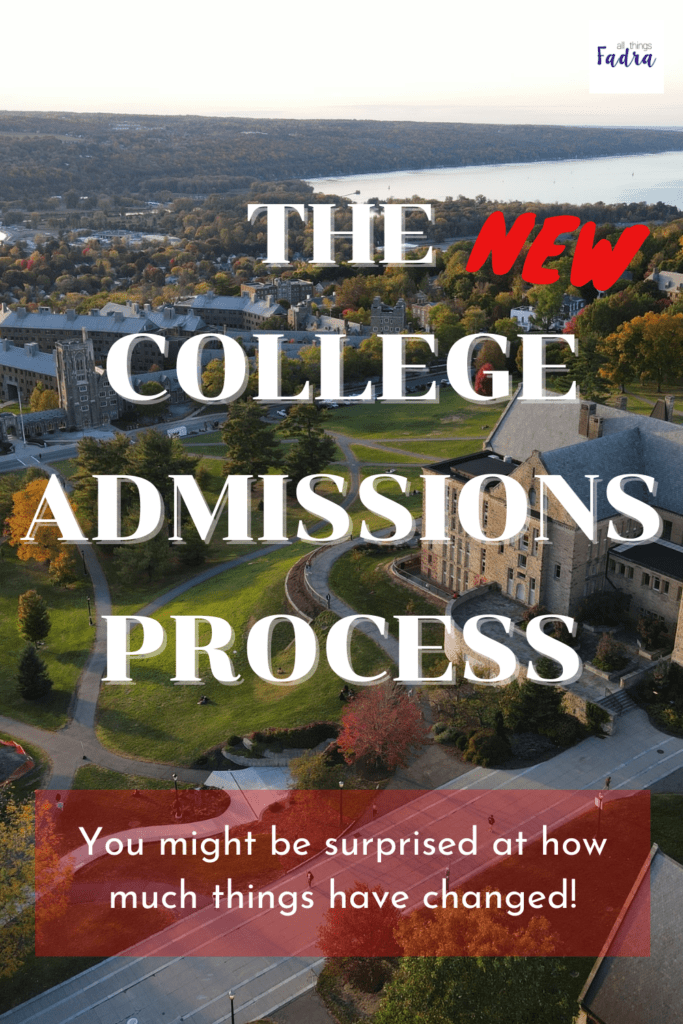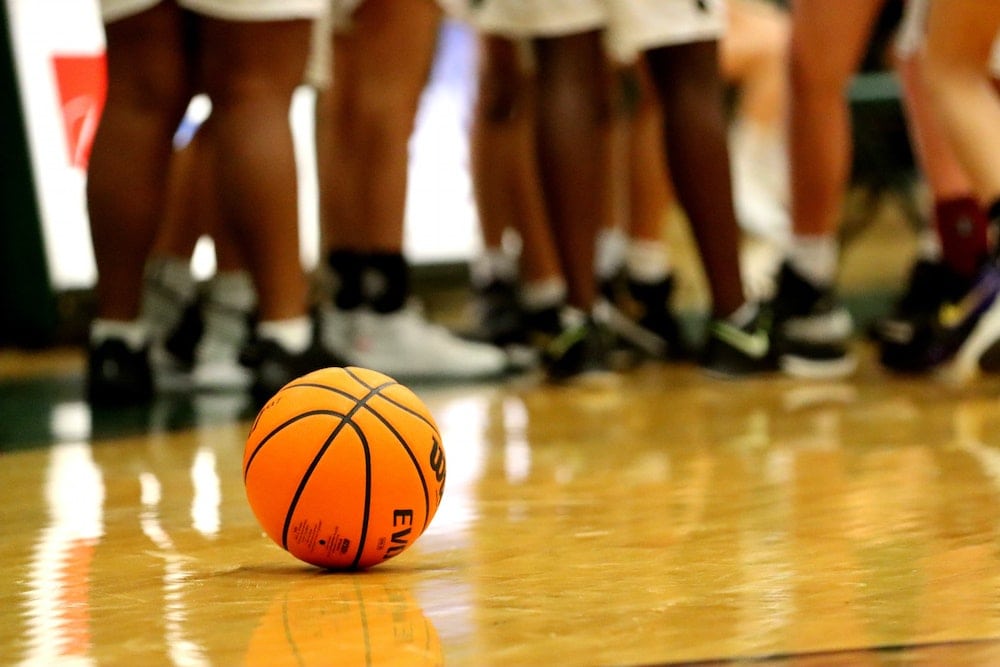
I asked some of my readers if they knew what parents need to know about college admissions. And the reason I asked is because I’m quickly becoming one of those parents.
I’m pretty sure it was yesterday I sent my little 5 year old Evan off to kindergarten and quietly weeped at home for what seemed like the longest day ever. Then today, I find myself suddenly preparing him for high school next year.
When your child reaches teenagerhood, it’s pretty easy to start thinking about the reality that our kids will eventually join the “real world” and we tend to speed up our preparation to make sure we’ve taught them everything they need to know.
While we’re good on the cooking and laundry front (cleaning skills still need improvement), our conversations have turned from life skills to professional skills, namely, what do you want to be when you grow up?
In his 14 short years, he’s decided that he’s going to be (in no particular order): a geologist, an animator, an investment banker, a CEO, President of the United States, and even a brief stint as a doctor. These days, we’re leaning more towards a career in political science and law. And of course, he wants to go to Harvard.
After I choked on the cost of college today, I started thinking realistically about his college choices. What are the best colleges for what he wants to do? What does it even take to get admitted to highly competitive school? Do SAT scores still matter? Is GPA important? What about community service and marching band and sports?
In other words, I’m clueless and I have less than four years to figure it out and help him figure it out.
If you’re in the same boat, I’ve got some good news. I recently spent an hour interviewing, John Morganelli Jr., who runs the consulting team at Ivy League Consulting, LLC., a college admissions consulting company focused on highly selective colleges and universities. He wanted to spend time talking about the college admissions process because he constantly sees “experts” who have it all wrong.
John worked as Director of Admissions at Cornell University’s College of Arts & Sciences and has the inside scoop on what your kids need to be focusing on now if they’re interested in Ivy League admissions or admission in any competitive college.
What are colleges looking for in applicants?

The answer to this one question completely blew me away and changed my perspective for all of the others.
Colleges aren’t necessarily looking for the most well-rounded student. They’re looking for the most well-rounded class. That means you don’t have to be everything to everybody. Colleges might not be interested in you if you’re the captain of the football team and are first chair of the orchestra if you have no clue what you want to study.
They place the greatest emphasis on academic curiosity. And that curiosity weaves into all other aspects of admissions.
Are you determined to become a doctor? In addition to string academics, have you focused on biological sciences? Have you helped with the local blood drive? Have you volunteered at the local hospital?
Is your primary interest in computer science? Have you created your own websites and programs or built your own servers? Have you mentored underprivileged kids on computer skills? Do you have a job at the local tech store?
They want to see what kind of value you can bring to their academic programs and communities. But that’s not all that matters.
What SAT scores do colleges want?

I took the SAT test no less than six times back in high school (and that doesn’t even count the PSAT I took in 7th grade) in search of the elusive high score needed for competitive colleges. And this was after practicing on my Commodore 64 with a home prep course.
John’s answer to this question was a very distinct, it depends. For a school like Cornell, the test admissions requirements vary by individual school within the university but the trend is moving away from standardized testing.
Many schools are now “test optional” or “test blind” schools.
Test optional means that submission scores are truly optional. If they’re good, you should probably submit them. If they’re not, you shouldn’t. Will that count against you? Not necessarily. You just need to make sure you’re bringing something else to the table that will vouch for your credibility in the academic area of your choosing.
Test blind means the scores are not considered at all, even if submitted. The University of California is using a test blind approach for fall 2021 admissions. The landscape is changing very rapidly as universities and colleges are considering how this omission will ultimately change their admissions, especially by allowing them to consider higher numbers of underrepresented minorities.
How important are extracurricular activities for college admissions?

As mentioned above, it’s not so much the number of activities as it is the relevancy of those activities to what you want to pursue.
If you’re interested in business, you should join or start a Future Business Leaders of America chapter. If you want to be an engineer, join the Science Olympiad or the Robotics team. If you want to consider law, join the debate team or mock trial competition.
Chances are you’ll be interested in doing those these anyway but you’ll want to lean into those activities that might be relevant to your academic pursuits.
Also, kids often have part-time jobs. That’s okay too as it demonstrates responsibility and life skills as well.
How does 2020 affect college admissions?

I won’t mentioned the C word because we all know what I mean when I mentioned 2020. The year that was. The year that many kids went to school virtually. It was challenging for many students but other students absolutely thrived.
For competitive schools, you’re only competition is the other students pursuing admission at that school. They are the same age and went through the same mental, emotional, and sometimes physical turmoil. The standard for a class like this is set but the competition, not the colleges.
If some students took the year to explore something they found of great interest or maybe even launched a business, they are definitely going to have the competitive advantage over those that sat around and watched Netflix for a year (no judgment from me though!)
Does it matter where you went to high school?

This was a question that was asked in many different ways. What if you went to a rural public high school and you’re competing against someone who went to a private prep school? How will the GPAs compare if one school has more AP classes than another?
Let me start by telling you to take a deep breath and relax. College admissions aren’t always comparing apples to apples. In fact, many teams compare prospective students in multiple ways, including the region where the student is applying from and the type of school they attended.
Counselors often use different benchmarks for these types of students. You may not have to be the “best” out of all students applying but you should focus on being the best in your environment.
How early should you start thinking about college?

There’s no set time but clearly we’re already thinking about it before we even set foot into high school. That’s because I know my son wants to go to a good, likely competitive, college and as a parent, I’m trying to adequately prepare him now.
Although I want him to explore his interests and have encouraged every single one of his potential pursuits (except for investment banking – I really don’t want him to do that one), he’s now aware that the sooner he can figure out what he’s interested in, the more he can feed his academic curiosity, which will ultimately prepare him for the right college.
What’s the best way to prepare for college admissions?

My friend in California assures me that private college counselors are de rigeur on the west coast. I immediately started panicking. Do I need a college counselor? How much is this going to cost me?
Instead, I talked to John and got a little insight. High school can be a lot of fun and I want my son to enjoy himself. But I also want to prepare him for the path he wants to go down. So we’re talking about everything I learned in my interview. We’ve already started exploring college websites and talked about how they market themselves to student and parents.
As a parent, I encourage you to do the same. If you want to college, it was probably 20 or 30 years ago and I’m here to tell you things have changed.
Don’t waste your money on SAT prep courses. Hold off on the essay consultants. Really take the time to research colleges and majors. Look at lesser known majors that might have a better acceptance rate but still put you in the same field of study. And explore, explore, explore.
Also, get to know your guidance counselors. According to John, they can serve as very important advocates for students. Sometimes a phone call from a guidance counselor to an admissions counselor can make the difference in making it off a waitlist.
If you’re dead set on Ivy League or other highly competitive schools, work with a consultant like John Morganelli and team to develop a strategy for the best schools with the best financial benefits, especially as it related to Early Decision (a key factor in admissions for many schools).
How can you afford all of this?

Lord, I don’t know. I seriously had a heart attack a few years ago when I attended an event at the University of Notre Dame. They shared with us that the full cost of attendance for one year was $65,000. Then, as I was researching a bit more this weekend, I found out that the TUITION ALONE at Georgetown University is $55,000.
This is when I’m glad I only had one kid.
But in all seriousness, the cost of a university is one thing. How much financial assistance they provide is another (whether it’s need-based or merit-based). It really depends on the university’s institutional priorities. The best way to determine costs is to use the Net Price Calculator which helps you calculate costs for all types of schools (note: some schools use their own calculator).
Trust me when I say that the sooner you think about finances, the sooner you can nudge your kid to work on that full ride scholarship!
Need a little bit more than the highlights? I captured some of John’s words of wisdom but it’s really best coming directly from him. It’s why I captured the full interview and narrowed it down to just under 30 minutes. Consider it your free college consultation!
Also, feel free to reach out to John Morganelli directly or buy his book Growing Ivy: How to Crack the Code on Elite College Admissions for more information.
Watch the full interview
Don’t take my word for it. Listen to John Morganelli talking in detail about what parents need to know about college admissions. It may surprise you!
If you have additional questions that I didn’t address or John didn’t get to, let me know so I can follow up!


The “test blind” thing is interesting to me! I graduated HS in 2005 and most Midwest colleges (in my area) required the ACT. I also took the SAT because I was applying to some East Coast schools too, like Tufts.